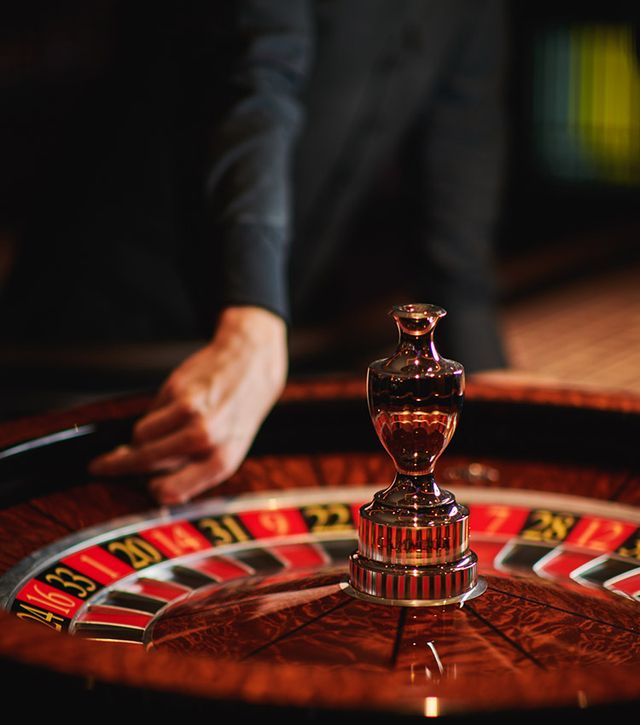Why Casino Gaming Are More Than Just Random Chance

Gambling games have long been linked with the thrill of chance and the anticipation of luck. Many people enter a casino with the belief that their success depends solely on luck. However, a deeper exploration reveals that these games encompass much more than just the aspect of luck. Understanding the mechanics, tactics, and human psychology behind casino games can greatly enhance the enjoyment and improve one’s chances of winning.
Aside from the captivating sounds of spinning reels and rolling dice, casino games involve a diverse array of skill, tactics, and decision-making. Whether you are engaged in blackjack, poker, or even baccarat, knowing the strategies can significantly influence the outcome of the game. Moreover, the psychology of the players and understanding the odds behind each game can shift the balance of success away from mere fortune. By recognizing these layers, players can appreciate casino games as a mixture of entertainment and minigame, transforming their approach from one of idleness to one of active participation.
The fascinating Psychology of Gambler’s Behavior
Comprehending the psychology behind gambling shows that player behavior is motivated by much more than mere chance. The thrill of taking risks, immediate reinforcement, and a potential for achieving large sums can create a intense emotional experience. Numerous players become captivated by the thrill, which can lead to a cycle of increased betting and risk-taking, often fueled by a hopeful hopefulness that colors their perceptions of success probabilities.
Another key element of the mindset of casino games is the illusion of control. Many gamblers think that their decisions, such as the choice of games or wagering strategies, can significantly influence the outcome. This belief can enhance their engagement and enjoyment, but it also contributes to persistent gambling behavior, as players often ignore the role of randomness within the games. The excitement derived from making choices gives players a feeling of involvement, which can be deceptive in terms of understanding the true odds involved.
Moreover, the environment of the casino holds a crucial role in influencing a gambler’s experience. Factors like illumination, sounds, and the presence of other players create a stimulating atmosphere that enhances the thrill of the game. This thoughtfully crafted environment can lead individuals to lose track of time and money spent, as they become enveloped in a sensory experience that heightens their emotional investment. Recognizing these psychological dynamics is essential for understanding why casino games entice players and keep them coming back for more.
Expertise vs. Luck in Casino Games
In the world of casino games, the argument between skill and chance is a significant one. Many players think that fortune is the primary factor, especially in games like slot machines where results are random. However, there are activities that evidently illustrate the importance of expertise, such as poker and 21, where players can employ tactics and choices that influence their overall performance. Understanding the dynamics and nuances of each game can greatly impact a player’s outcome and results.
The role of expertise becomes apparent when considering the different tactics accessible to players. In activities like poker, for example, players must analyze their opponents, assess probabilities, and make informed decisions based on their hand and the shared cards. This level of strategy showcases how proficient players can consistently defeat novices, proving that winning is not solely based on chance but rather on the application of knowledge and experience. Similarly, in blackjack, players can use techniques like counting cards to gain an advantage over the casino, further showing the importance of skill.
On the flip side, chance cannot be completely disregarded in any gambling game. While skill can improve a player’s odds of winning, unpredictable outcomes still play a crucial role. Even the most effective strategies can break down due to the random nature of draws or spins. This interaction between skill and luck creates a dynamic gaming environment where players must adapt and react to random events while also leveraging their abilities. Ultimately, successful gambling gaming is a mix of both elements, contributing to the intricacy and thrill of the experience. Ga179
Strategies for Success
To succeed in gaming, players must understand the value of creating a plan tailored to the distinct game they are engaging with. Each title has its specific set of regulations, chances, and nuances that require a cautious strategy. For instance, in titles like poker, players can employ techniques such as card counting to make better decisions and boost their odds of winning. Grasping the probabilities and payouts associated with each game can allow players to make smarter choices and improve their overall play experience.
Financial control is another essential strategy that cannot be missed. Players should define a budget for their gambling time and commit to it. This guarantees that they do not go overboard and helps establish a sense of discipline over their play behavior. Determining in advance how much to bet and the right moment to leave can prevent emotional decisions that can result in significant losses. Prudent bankroll management enables players to savor gambling without the anxiety of losing more than they can afford.
Lastly, gaining insights from play and noticing other players can provide insightful understanding. Many successful players invest time reviewing not only their self-play but also that of fellow players. This observation can uncover new methods and techniques, ultimately promoting better decision-making. Conducting self-reflection after gaming sessions helps players recognize what succeeded and what didn’t, permitting them to refine their strategies over time. By merging knowledge, discipline, and awareness, players can enhance their chances of success in casino games.